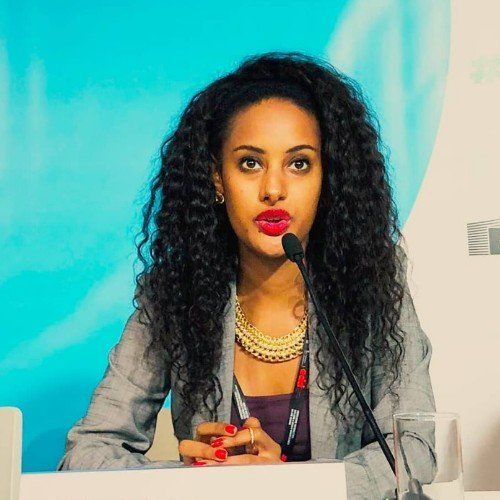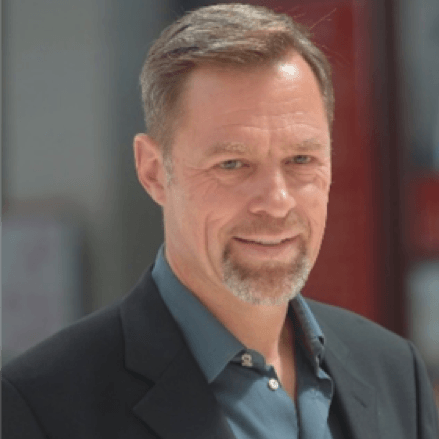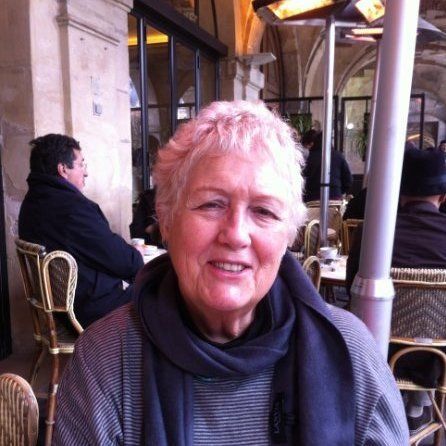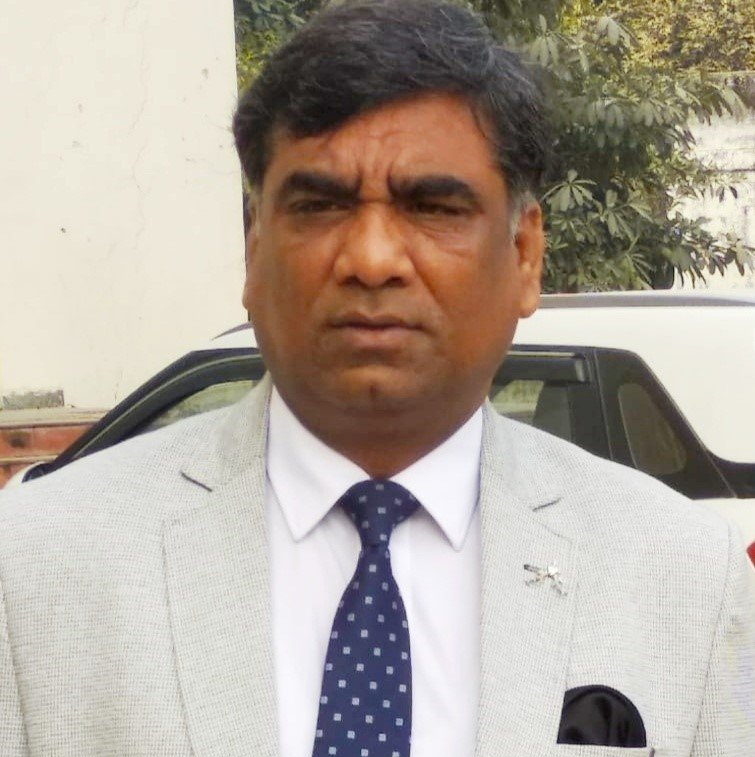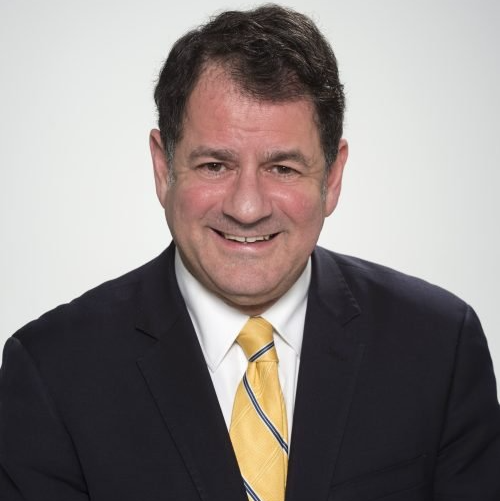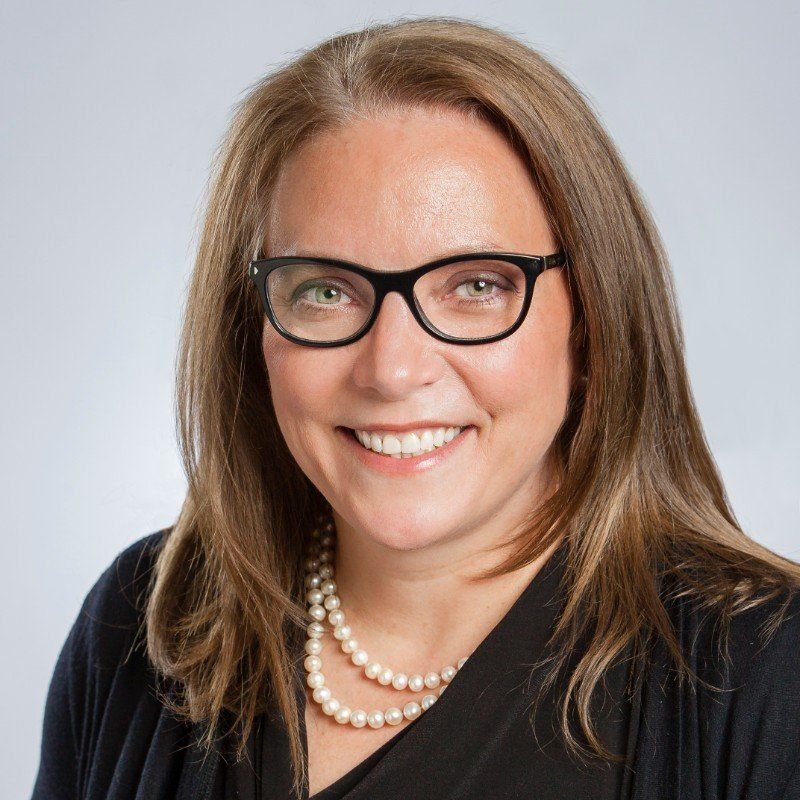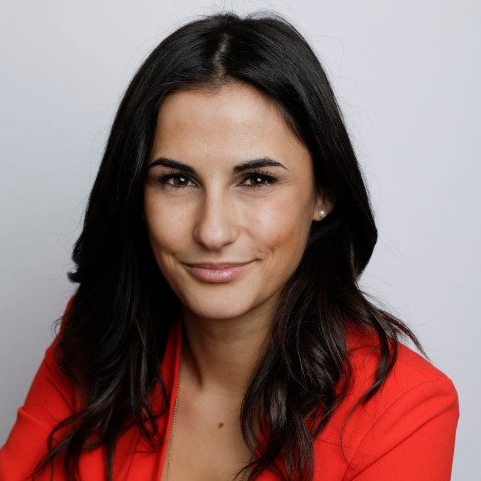Public Participation
3:00 - 4:45 PM EDT
Topic: Harnessing Urban Youth to Transform our Urban Communities
Young people are learning, innovating, connecting, and taking action to drive change in their communities and to help the world achieve the Sustainable Development Goals (SDGs). However, many face untold impediments in being drivers of change, such as homelessness, lack of skills training, gender-based discrimination. When youth have access to the appropriate resources and opportunities, this leads to empowering youth to seize opportunities and take action in their local communities and contribute to national and global dialogues and decision making. By empowering the youth of today, all of society realizes the dividend and the youth of tomorrow will have greater influence on the future.
Session participants will highlight the current barriers for youth to achieve their full potential in urban societies and approaches for youth to overcome these challenges.
Speakers
Moderator of the Session
Bitania Lulu
- Special Adviser on Youth to the European Commission, Ethiopia
Bitania Lulu Berhanu is a young African leader committed to empowering bright African minds to become change agents in their communities and countries. She holds a BSc Degree in Electrical and Computer Engineering from Addis Ababa University Institute of Technology in Ethiopia and is pursuing her Masters Degree in Human and Economic Development in African Studies at Addis Ababa University. She is the founding Executive Director of YALDA Addis Ababa University (YALDA-AAU), where she has partnered with the African Union Commission to hold the first ever AU AGENDA 2063 Youth Summit. Bitania has received the Female Personality of the Year 2015 (Africa Youth Awards), Honorary Award (The Black History Month celebration), BHM 2016 (United Stated International University-Africa), and Pan African Science Award 2017 (Pan African Youth Union Congress). She was also identified by the African Youth Awards as one of the 100 Most Influential Young Africans in 2016.
Qahtan Hadi Hussein
- Chancellor, University of Babylon, Iraq
• Scientific Vice Chancellor of Babylon university / Irregular periods.
• Dean of college of nursing ( the initiator) /Babylon University for the period 2007-2013.
• Head of the nursing Department /Foundation of Technical Education/Babylon Technical institution 1994-1997.
• Head of Community Health Department / Babylon Technical institution 1992-1994.
• Head of the Technical Health Department /Foundation of Technical Education/Babylon Technical institution 1991-1992.
•Rapporteur of the Technical Health Department /Babylon Technical institution 1990-1991.
Frank D'hondt
- Secretary General, ISOCARP, Netherlands
Frank D’hondt is founder and managing director of the Territorial Capital Institute. Frank is an independent free-lance territorial planning consultant, currently working with mainly United Nations agencies in different places around the world. Frank is long-standing member, ambassador and member of the board of the Journal of ISOCARP (International Society of City and Regional Planners).
MSc. Frank D’hondt is an independent free-lance territorial planning consultant and has master’s degrees in urban Geography (1985) and Spatial Planning (1988), both obtained at Gent University in Belgium. He started as researcher at the Brussels Free University, worked 13 years on cross-border and transnational planning in Benelux/European Union, and founded and managed O2-planning-consultancy dealing with a large variety of spatial planning processes and projects. Since 2015 Frank is mainly working internationally with UN-Habitat, UNDP and UNOPS, in multiple countries including Belarus, Kosovo, Palestine, Nepal, Afghanistan, China, Kenya and the Caribbean. With UN-Habitat he co-published a first handbook on Participatory Visioning and a second handbook to implement the International Guidelines on Urban and Territorial Planning, an acknowledged instrument for the implementation of the United Nations’ New Urban Agenda, with guided applications and training in Latin America, Caribbean, Europe, Middle-East, Africa and Asia. Frank is a founding member of a Belgian Association for Territories and Planning, was vice-president of the European Council of Spatial Planners and currently ambassador and member of the Editorial Board of the Journal of the International Society of City and Regional Planners.
Caroline Moser
- Professor & Specialist, Social Policy & Urban Social Anthropology
I am an Advisor and Independent Researcher, Honorary Professor at the Bartlett Development Planning Unit, UCL, and Emeritus Professor at the University of Manchester.
I am an urban social anthropologist and social policy specialist with more than forty years’ experience in urban development and social policy. My current interrelated research and advisory work themes are :
• Gender transformation, asset accumulation and cities with a recent book and articles
• Asset accumulation and poverty reduction, including intergenerational assets, transnational migration assets with longitudinal research in Guayaquil, Ecuador (1978-2018). Together with Titus, my son, I just completed a 52 minute documentary film called 'Calle K' about intergenerational social capital in the community, that includes footage from 'People of the Barrio' made 40 years ago.
Other research includes three projects on asset adaptation to climate change-related severe weather in urban Kenya, Colombia and Tegucigalpa
• Urban violence and conflict with research with three research projects ranging from Jamaica, Colombia and Guatemala to Chile and Kenya
I have undertaken capacity building in participatory urban appraisal (PUA) methodology with recent training of researchers in Colombia, Guatemala, Chile and Kenya and WIEGO global network. Recent evaluations include DFID (gender audit); UNICEF (human rights) and Swedish Mistra (urban futures).
I have worked as a lecturer in academic university departments at the LSE, London and New School, New York; in a graduate urban development institute, the Development Planning Unit, UCL, where I initiated global training on gender planning; in a policy-focused international agency, the World Bank, where as Lead Specialist for Social Development in Latin America, I researched the impact of structural adjustment on the urban poor; and in policy-related research think-tanks, the Overseas Development Institute, London and Brookings Institution, Washington. In 2012 I completed a 5-year appointment as Professor of Urban Development and Director of the Global Urban Research Centre at the University of Manchester.
Bikram Keshari Pattanaik
- Director, School of Extension and Development Studies, Indira Gandhi National Open University, New Delhi, India
B. K. Pattanaik is a Professor, currently Director, at the School of Extension and Development Studies in the Indira Gandhi National Open University (IGNOU), New Delhi. He is the editor of the Political Economy Journal of India. He is also on the editorial board of the Journal of Economics and Development Studies, American Research Institute for Policy Development, New York; Asian Journal of Social Sciences & Humanities, Oyama, Japan; and the European Journal of Education Studies, Bucharest, Romania. Professor Pattanaik holds a master’s degree in economics, MA in human resource management and PhD in economics. He has more than 30 years of research and teaching experience to his credit in various national-level organizations, for example, the National Council of Educational Research and Training (NCERT), New Delhi; National Institute of Health & Family Welfare (NIHFW), New Delhi and Centre for Research in Rural and Industrial Development (CRRID), an ICSSR Centre, Chandigarh. He was team members of various research projects and has worked with and completed 26 projects sponsored by various international agencies such as the World Bank, the United States Agency for International Development (USAID), the Ford Foundation, the United Nations Children’s Fund (UNICEF), the United Nations Development Programme (UNDP), the European Commission, the United Nations Fund for Population Activities (UNFPA; now United Nations Population Fund), the Bill & Melinda Gates Foundation, as well as projects sponsored by various government departments such as the Ministry of Panchayati Raj, Rural Development, Health and Family Welfare, Drinking Water and Sanitation, Agriculture and Farmer’s Welfare and Planning Commission of the Government of India. He has also completed projects and studies sponsored by various departments of the state governments of Punjab, Haryana and Himachal Pradesh in different areas of development, such as drinking water and sanitation, border areas, migrant labour, contract farming, studies on Scheduled Castes and Scheduled Tribes, health and family welfare, Panchayati Raj, education, various rural development programmes, urban local bodies, women and child welfare, preparation of decentralized district development plans.
Annesha Mukherjee
- PhD Scholar at the Centre for Development Studies (JNU), Thiruvananthapuram, Kerala,
Annesha Mukherjee is currently a first year PhD research scholar at the Centre for Development Studies (JNU), Thiruvananthapuram, Kerala. She submitted her MPhil thesis titled, 'Revisiting Urbanisation in India: Examining Mobility and Quality across Size Classes' in October, 2020 and received her degree a month back. Her field of interest is broadly development economics. Specific research interests include urban economics, gender economics, and labour economics.
Luis Fuentes Arce
- Director, Institute of Urban Studies, Pontifical Catholic, Chile
Has specialized in areas of urban development dedicated to competitiveness and labor markets in Latin American cities, writing articles in magazines and publications and exhibiting the results of its investigations into important Latin American-level events. His investigations are currently taking place in the real estate market, urban crime and socio-spatial transformations in Chilean cities.
Cherie Enns
- Associate Professor, School of Land Use and Environmental Change, University of Fraser Valley, Canada
Dr. Cherie Enns, RPP, is an associate professor in the School of Land Use and Environmental Change and Global Development Studies at UFV. She is a registered urban planner and experienced educator with extensive experience engaging internationally. She has initiated and led international projects related to child rights, food systems, sustainable development goals (SDGs), urban planning policy, and youth engagement.
Dr. Enns has experience managing programs, mobilizing resources, and working on child rights, placemaking and food security projects in several countries, including Kenya, Tanzania, Uganda, South Sudan, Somalia, and India. She has more recently led several humanitarian projects within the Eastern Africa Community. Cherie also leads a Universities Canada international internship program, focusing on food systems and urban policy, and manages an online e-learning platform that includes applied courses in human rights and food systems to youth based in the global south.
Dr. Enns has also led projects related to refugee claimants, homelessness, and child rights within British Columbia. She holds an MA in Community and Regional Planning (UBC) and a Ph.D. in International Policy and Program Management at Ardhi Regional University in Tanzania.
Azizur Rahman Siddiqui
- Professor & Head, Dept of Geography, University of Allahabad, India
Professor A.R. Siddiqui did his B.Sc, M.Sc, M.Phil&Ph.D degree from Aligarh Muslim University, Aligarh. Dr. Siddiqui also qualified UCG NET/Agricultural Research Services NET Examination. Professor A.R. Siddiqui started his initial career from Chaudhary Charan Singh University, Meerut I the year 1999 as a lecturer. Later he joined University of Allahabad University in the year 2001.
He has been elevated as Reader in the year 2009, Associate Professor in 2012 and Professor in 2015. He has completed NNRMS training course and three international training programmes sponsored by United Nations. He has also obtained P.G. Diploma in Geo-Information Science specialization in Geo-Hazard from IIRS Dehradun and ITC The Netherlands. His specialization is in arid zone research, urban environment issues and application of remote sensing and GIS in land degradation studies. He has supervised 12 Ph.D students. He has published 38 research papers in peer reviewed journals and Dr. A.R. Siddiqui more than 70 national and international conferences.
Professor A.R. Siddiqui is recipient of excellence award in the year 2018 by university of Allahabad. He has visited France, Russia, China, Belgium, The Netherlands, Italy, Austria, Greece, Nepal for academic purposes. Dr. A.R. Siddiqui is member of various professional bodies. Dr. A.R. Siddiqui was also Dean Students Welfare (two times). Presently he is having the responsibility of International Advisor of Foreign Students, Chairman Data Cell, Nodal officer NIRF/AISHE etc. He is holding the post of Senior Vice President Allahabad University Teachers Association. Earlier he was Joint Secretary IGI/Treasurer IGI. Now form the 2016, he is holding the post of Secretary General Indian Institute of Geomorphologists.
S. M. Shaikat
- Executive Director, SERAC, Bangladesh
Twitter: @SMShaikat1
Email: shaikat@serac-bd.org
SM Shaikat is the Executive Director of SERAC-Bangladesh, a youth organization advocating and implementing programs on access to health rights, democratic participation of youth, friendly services, and gender based violence prevention in Bangladesh. He was the Bangladesh country moderator to the 11th International Dialogue on Population and Development in Berlin. Shaikat has worked with a number of global youth agencies, including as a Women Deliver Young Leader, Bangladesh Country Coordinator for International Youth Alliance for Family Planning and an Ambassador for Young Men for Gender Equality. He was elected to the UN-Habitat Youth Advisory Board in 2015 and has been a speaker at several events during the 69th, 70th, and 72th UN General Assemblies in 2014, 2015 and 2017, and at 62nd Commission on the Status of Women in 2018. He was the opening plenary speaker of the 9th World Urban Forum in Malaysia. Shaikat is currently leading a special initiative to build urban youth councils in Bangladesh to increase access to democratic participation of young people in the country. This SERAC initiative supported by the United Nations Democracy Fund and UN-Habitat will create civic space for youths in the city councils, and enable them to access their agency of leadership in a systematic process. He was nominated by the U.S. Department of State to the International Visitors Leadership Program in 2013, and Asia Young Leader for Democracy in 2015. He has been named as a Bayer Scholar and awarded the 120Under40 Championship by the Bill and Melinda Gates institute at the Johns Hopkins University. With his leadership, young people in Bangladesh are progressing by learning, standing by and protecting the rights of others.
Sandhya Venkateswaran
- Fellow, Lancet Citizen's Commission on Reimagining India's Health Systems, India
Spanning a career over three decades, engaged with a wide range of issues in the social sector spanning across health, nutrition, gender, natural resources, urban development, accountability, capability and others. Over the last 15 years, focused on policy issues, developing and leading the policy and advocacy portfolio in organisations such as the Bill and Melinda Gates foundation, Global Alliance for Improved Nutrition and CARE. Worked with multiple grassroots campaigns and civil society organisations, as well as with government and international organisations. Developed strong relationships and networks (government, non-profit, civil society, philanthropy, community, private sector, academia, donor partners, think tanks), and direct experience of building institutions. Have authored books, multiple articles and other publications on varied social sector issues.
James Pasternak
- Councillor, City of Toronto
Toronto City Councillor James Pasternak was elected to City Council in 2010 and was re-elected in 2014 and in 2018. Councillor Pasternak sits on the Mayor’s Executive Committee as the current Chair of the Infrastructure and Environment Committee and he is also Chair of the North York Community Council.
During his time in office, Councillor Pasternak has been committed to fiscal responsibility while investing in communities. Councillor Pasternak has championed investing in city parks, recreation programs, services for seniors, basement flooding protection program, public realm projects and road infrastructure.
He has hosted numerous community meetings on topics such as transit, community safety, the arts, affordable housing, traffic issues, basement flooding and budgeting priorities. Councillor Pasternak is credited with driving a number of transformative policy issues at City Hall. His work lead to the updating of the 15 year old City of Toronto Anti-Discrimination Policy; investigating the role of the City in prohibiting hate rallies from taking place on City property, the creation of Toronto’s Tennis Excellence Framework; the move to expand Toronto’s student nutrition program; study the safety and privacy issues of drone aircraft; and bring the issue of e-cigarettes onto the Toronto Board of Health agenda.
Before coming to City Hall, James Pasternak was elected as a Toronto District School Board Trustee where he lead community initiatives such as special education and seeing the establishment of Toronto’s only Afrocentric Alternative School. Councillor Pasternak has earned degrees from the London School of Economics and Political Science, the University of Western Ontario and York University.
Danielle Feidler
- Senior Vice President, Brand Experience, Canada
Tridel is Canada’s largest developer of residential condominiums. As a City Builder of over 85 years and 85,000 homes, our focus has been to go well beyond the physical bricks and mortar of development to focus on the social infrastructure that is so critical to building true community. Specifically, we work to create communities that foster social inclusion and cohesion. By investing resources dedicated to developing economic opportunities while creating amazing experiences for engagement; we have demonstrated the importance of wholistic and authentic place-making. Core to this is a commitment to connecting with community youth to build capacity for their future careers in construction or other professional services that we can offer through the Tridel Group of Companies. As a member of the executive team and employee of Tridel for over 23 years, I look forward to engaging with the UEF panel to share experiences and advance best practices in supporting youth to positively transform our urban communities.
Raly Chakarova
- Executive Director at BOLT Charitable Foundation, Canada
As the Executive Director of BOLT, I want to ensure that we can help create opportunities for all under-serviced youth interested in pursuing training, education and employment in construction. Prior to joining BOLT, I was the Director of Policy at the Toronto Region Board of Trade, leading its work on talent and trade. One of the policy reports I authored at the Board was the high profiled “Help Wanted: Modernizing Employment and Skills Training Services in Ontario” that looked at improving workforce development practices in the province. A big reason why I joined BOLT was to put the principles of that report into practice. As a former senior advisor to provincial cabinet ministers, including Ontario’s Minister of Economic Development and Growth, I have an in-depth and practical understanding of government policy. I am a Board Member of ACCES Employment, a member of RESCON's Anti-Racism Roundtable, and member of the Women in Construction Committee at George Brown College. I have a Master of Public Administration from Queen’s University and a Specialist in International Development and Political Science from University of Toronto. In my spare time, I love to try out new recipes and take long walks with my dog Luna.
Assistant Session Coordinator

Hamidreza Shojaee
Assistant Session Coordinator, Harnessing Urban Youth to Transform our Urban Communities, Urban Economy Forum 3


